 Movies and TV
Movies and TV  Movies and TV
Movies and TV  Health
Health 10 Miraculous Advances Toward Curing Incurable Diseases
 Miscellaneous
Miscellaneous 10 Undeniable Signs That People’s Views of Mushrooms Are Changing
 Animals
Animals 10 Strange Attempts to Smuggle Animals
 Travel
Travel 10 Natural Rock Formations That Will Make You Do a Double Take
 Movies and TV
Movies and TV 10 Actors Hidden in Your Favorite Movies
 Our World
Our World 10 Science Facts That Will Change How You Look at the World
 Pop Culture
Pop Culture 10 Incredible Female Comic Book Artists
 Crime
Crime 10 Terrifying Serial Killers from Centuries Ago
 Technology
Technology 10 Hilariously Over-Engineered Solutions to Simple Problems
 Movies and TV
Movies and TV 10 Movie Adaptions That Brought Popular Songs to Life
 Health
Health 10 Miraculous Advances Toward Curing Incurable Diseases
 Miscellaneous
Miscellaneous 10 Undeniable Signs That People’s Views of Mushrooms Are Changing
Who's Behind Listverse?

Jamie Frater
Head Editor
Jamie founded Listverse due to an insatiable desire to share fascinating, obscure, and bizarre facts. He has been a guest speaker on numerous national radio and television stations and is a five time published author.
More About Us Animals
Animals 10 Strange Attempts to Smuggle Animals
 Travel
Travel 10 Natural Rock Formations That Will Make You Do a Double Take
 Movies and TV
Movies and TV 10 Actors Hidden in Your Favorite Movies
 Our World
Our World 10 Science Facts That Will Change How You Look at the World
 Pop Culture
Pop Culture 10 Incredible Female Comic Book Artists
 Crime
Crime 10 Terrifying Serial Killers from Centuries Ago
 Technology
Technology 10 Hilariously Over-Engineered Solutions to Simple Problems
Top 10 Fascinating Facts About Wales
With only about three million people and a sheep population three times larger, you might be forgiven for thinking that Wales is a dull place, populated only by drunkards with incomprehensible names and hairy ears. While the hairy ears thing is almost certainly a lie made up by the treacherous English, Wales is actually a fascinating country with mysteries around every corner.
10 Welshmen Never Yield
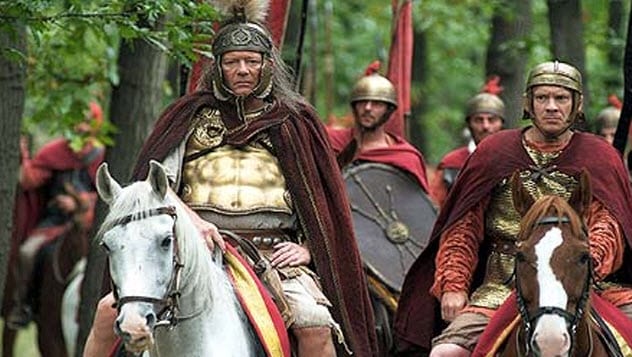
When conquering the British Isles, one of the major problems in history has been the “Welsh problem.” From hill forts in the Roman dominion to the stonework of the Normans and beyond, the Welsh were murderous and difficult to beat. The Romans took over 40 years to subdue the various tribes, which is quite the feat considering that Caesar’s Gallic Wars lasted just eight years.
As the Roman historian Tacitus wrote of the campaign in North Wales:
On the coastline, a line of warriors of the opposition was stationed, mainly made up of armed men, among them women, with their hair blowing in the wind, while they were carrying torches. Druids were among them, shouting terrifying spells, their hands raised toward the heavens, which scared our soldiers so much that their limbs became paralyzed. As a result, they remained stationary and were injured. At the end of the battle, the Romans were victorious, and the holy oaks of the druids were destroyed.[1]
Brutal.
The Welsh resistance was impressive, lasting from AD 48 to AD 90. Considering Boudicca rose and fell in a rebellion that lasted perhaps a single year, that the might of Rome was held by little more than tribal warrior cults tells of the difficult terrain encountered by the legions and the general surly mood of the Brythonic tribes across England—violent, uncultured, and prone to revolt.
Even after building 300 defensive forts, the Romans never took full control of the country. It would not be for another 900 years that Wales would be truly invaded again.
9 Offa’s Dyke
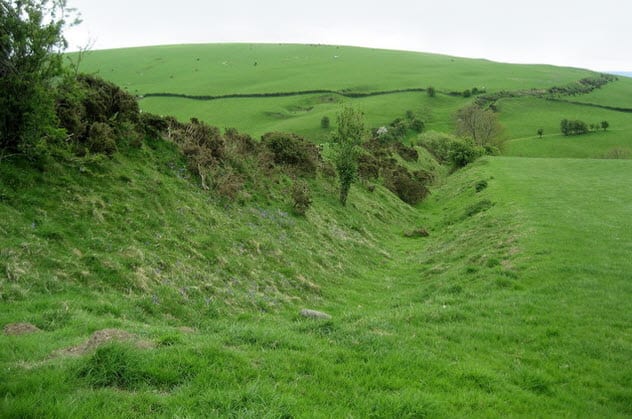
In between the Romans deciding that Britain was pointless and the Normans deciding that Britain was actually a good place to take over after all, the country was split into many kingdoms. They spent their time killing each other and claiming that God was definitely on their side.
The biggest of these was the Anglo-Saxon kingdom of Mercia. Named for the eighth-century king who was presumed to have built it (until recently), Offa’s Dyke is a defensive earthwork that formed the border between Mercia and the Welsh kingdom of Powys.[2]
At this time, the Mercian plan was to make all of England theirs. It’s important to note that the Mercians did not consider themselves “English” at all. They were Mercians, as much as modern Frenchmen are French and Italians are Italian. They were militarily and politically the most powerful people of the day, and even they had to spend decades building a defense that is 2.5 meters (8 ft) high, 20 meters (65 ft) wide, and 240 kilometers (150 mi) long just to keep Welsh people out.
8 Welsh Terrorism Boosted The Construction Industry
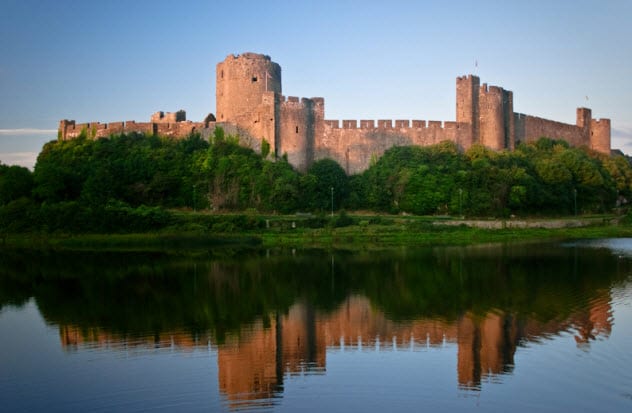
After the Norman Conquest, which only took six years to put down all rebellion in England, the victors were presented with the same problem as everyone before them. Wales was a nightmare to control.
Initially, the Welsh were not on the radar of King William the Conqueror. He only wanted the English crown that he felt was his. Feeling left out after almost 1,000 years of nonstop fighting and raiding, the Welsh funded more English rebellions to restore normal relations.
The blowback was a series of invasions of Wales by the Normans that lasted for more than two centuries. At that point, the scene became so confused with barons changing sides and fighting each other that a consistent uprising was no longer apparent.[3]
Due to the problems posed by terrain, the Normans adopted a similar tactic to the Romans: Build castles everywhere, and hope for the best. By this time, of course, stone fortifications were a possibility, and it is a testament to how unruly the Welsh were that there are over 600 sites where castles stood. One hundred castles still stand to this day, making Wales the most heavily fortified place on Earth.
7 Wales Had A Nazi-Obsessed Serial Killer
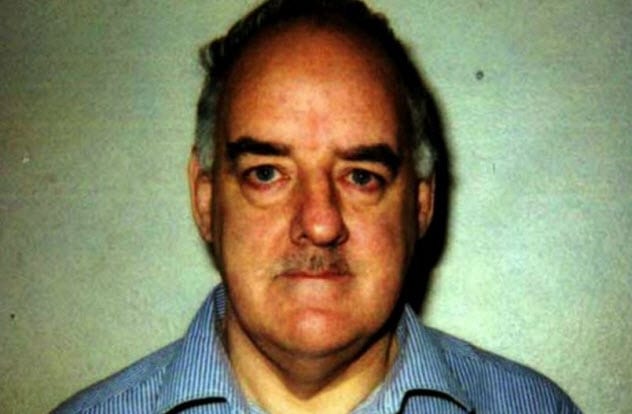
We could fill this entire list with gory medieval Welsh history, but modern Wales has its own darkness, too. Peter Moore is one of the UK’s most dangerous men. Described in court as “the man in black—black thoughts and the blackest of deeds,” Moore had a penchant for Nazi regalia and was a dominant, violent homosexual who gained his sexual satisfaction from causing pain.
By day, he was a mild-mannered owner of four small-town cinemas. At night, Moore donned black leather and assaulted other men. When finally caught, he confessed to over 50 violent attacks over 20 years. None of these attacks was fatal. It was only in 1995 that Moore came to the attention of the law.
After the death of his mother the previous May, Moore killed four men in three months with a knife. He picked up some at gay meeting spots by chance and another through a shared affinity for Nazi paraphernalia.[4]
When asked why he did it, Moore said: “For fun.” In court, he blamed the killings on Jason Voorhees from the Friday the 13th slasher movies.
6 The Last Armed Uprising In The UK Was Welsh (Naturally)
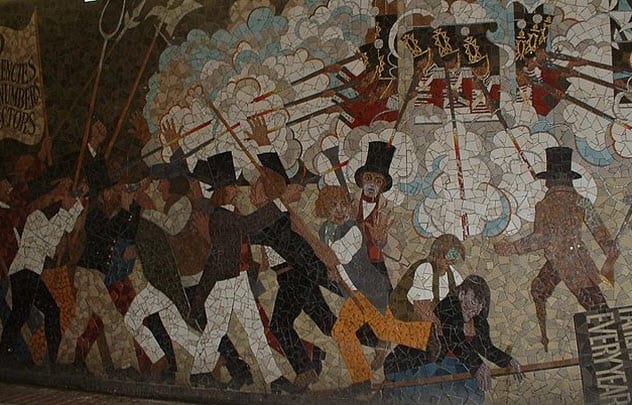
There may be something in the water in South Wales. Nearly two millennia after the Romans were being merrily hacked to bits by Welsh tribes, there was the final armed uprising against the state. In 1838, Parliament rejected the first Chartist petition, which had such outrageous requests as “stop treating us like serfs, please” and “we want a day off sometimes.”
Over 10,000 Chartists marched on Newport to protest the lack of representation. This led to a confrontation with a small detachment of soldiers and special constables who were stationed at the Westgate Hotel where some Chartist prisoners were held. A battle began that involved firearms, clubs, and homemade pikes.[5]
In the end, 22 men lay dead and 50 were wounded. The ringleaders were the last people in Britain sentenced to be hanged, drawn, and quartered. But this was commuted by Queen Victoria for the allegedly more merciful punishment of being sent to Australia forever.
5 Goats Are Important
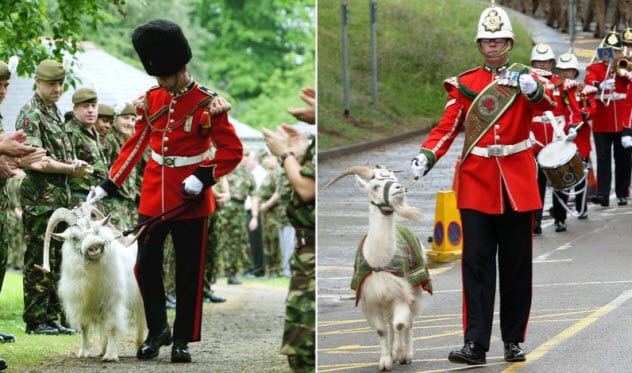
While Wales is more commonly associated with sheep, goats also play a bizarre role in modern life, particularly in the military. Since 1844, the Royal Welch Fusiliers have had a goat as part of their troops—with all the rights and privileges that came with the rank the goat possessed.
Until his death (from old age) in 2015, a goat called Taffy was officially known as Lance Corporal Gwillam Jenkins, which meant he was saluted by lower ranks and had his own quarters. However, William Windsor I (aka Billy), another goat in the same position from 2001–09, was once demoted to fusilier for three months after refusing to remain in parade formation (in front of the queen, no less) and for trying to headbutt a drummer.[6]
In other goat news, a Welsh man was once prescribed two years’ worth of Valium to combat headaches. Due to an error by his doctor, he was instructed to take all the medication over a period of two months. This led to some interesting life choices, including an impromptu house sale and new lodgings in a hovel with goats. The case was settled out of court for the sum of £50,000.
4 Declining Industry Is A Major Problem, And The Kids Aren’t All Right
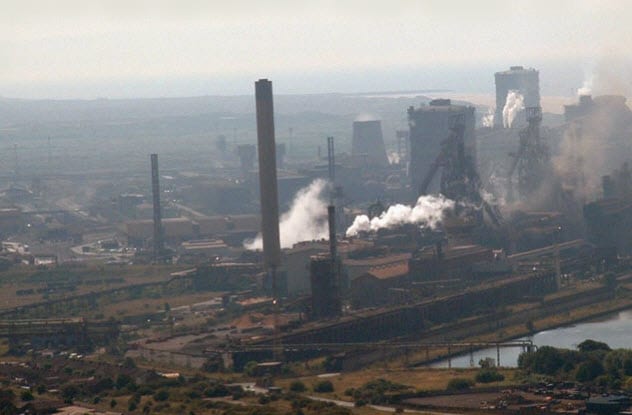
When the steelworks at Port Talbot closes, it will be the end of yet another centuries-old industry in Wales, following coal, wool, and indeed piracy into the annals of history. Due to competition for raw materials production from the Far East, most manufacturing and heavy industry jobs are gone.
Some areas of Wales are now experiencing youth unemployment as high as 25 percent or more. There are few job prospects beyond the most basic manual labor or the ever-present service industry. The process of privatization and eventual closure of the industries that made Wales the powerhouse of the British Empire began under Margaret Thatcher. The recession of the 1980s also drove a spike into the heart of Welsh industry.
Although there have been attempts to move further into high-tech industries (including an aviation company headed by Iron Maiden singer Bruce Dickinson), many employees of these firms are graduates from better universities than Wales can provide. The young Welsh are left with a grim future indeed.[7]
3 Rugby Star Beats Scotland, Gets Drunk, Evades Police

No list on Wales would be complete without a rugby story. As most rugby stories end with bodily waste or copious swearing, we have found possibly the only PG-13 rugby story in Welsh history. After defeating Scotland in a Six Nations match, flanker Andy Powell was imbibing the normal amount of alcohol (as only rugby players know how) when he was struck by the urge to have a cigarette. You know, being an elite athlete and all.
As he was no fool, he knew that taking a car to a nearby garage to buy cigarettes was out of the question. He was over the drink-driving limit. However, he was at a golf resort and surely, he reasoned, you can’t be arrested for being drunk while driving a golf cart.[8]
When stopped some 6 kilometers (4 mi) and 45 minutes later by police, Powell failed a breath test. He was also told that, while technically a golf cart is not a car, you still cannot drive it on the biggest motorway in the country.
These small countries are crazy. Just imagine a famous American football player getting into a car chase—it would be ridiculous.
2 The Aberfan Disaster
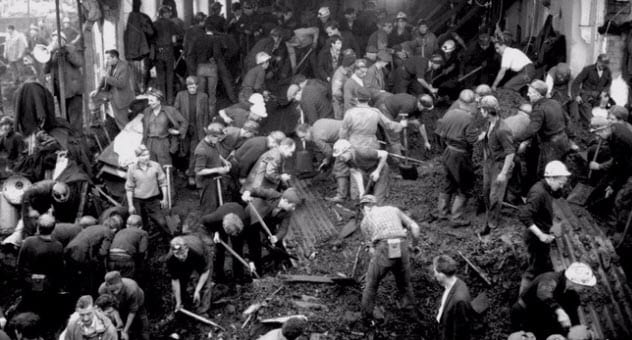
Mining life dominated industrial Wales for generations. But by the 20th century, the perfect storm of a laissez-faire attitude toward health and safety and mass industrialization led to one of the worst tragedies in British history.
The National Coal Board had been warned for years about the spoil tips that overlooked the village of Aberfan, but nothing was done. Spoil, the fine particles of coal and other worthless by-products of mining, was taken to the top of the Welsh valleys where the land was unusable.
This matter was prone to slippage, having the consistency of sand and small stones. Tip Number Seven at Aberfan began in 1958. By October 1966, it contained over 225,000 cubic meters (7.9 million ft3) of waste, which was soaked by the incessant autumn rains.
When the slip happened at 9:15 AM on Friday, October 21—the last day before half-term—150,000 cubic meters (5.3 million ft3) of debris broke away from the tip and flowed downhill at avalanche speeds. It swamped houses on the hills and buried Pantglas Junior School.
Sadly, 116 children died, all under 10 years old. Another 28 adults lost their lives, including five teachers.[9]
1 Milford Haven Is Still Full Of Pirates (And Had A Hand In Starting The US Navy)
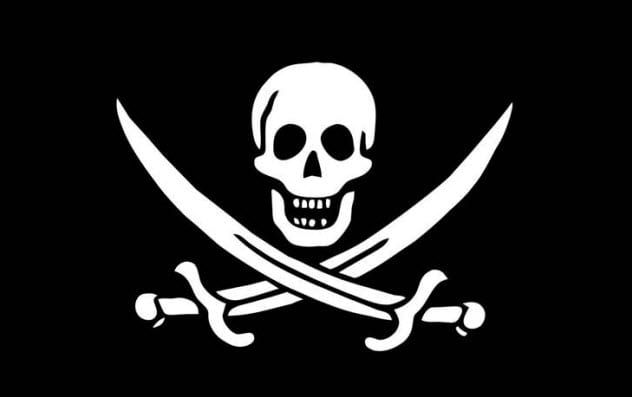
In 1697, Daniel Defoe rhetorically asked, “Who would serve his king and country and fight and be knocked on the head for 24 shillings per month that can have 50 shillings without that hazard?” This truism went double for the Pembrokeshire sailors of the 18th century.
Between Tenby, Fishguard, and Milford Haven, the sea was king twice over. First, as for all Britain, it was the source of wealth, and second, it was as far away as possible from the law and yet close to the Atlantic, the Irish Sea, and the English Channel.
Henry Morgan and Black Bart (both Welshmen), John Paul Jones (Scottish but rebelled to form the first United States Navy), and many other pirates made their mark from and indeed on Pembrokeshire. Many caves (such as Tobacco Cave) are known by the goods that were once smuggled, and many fine houses were built on the profits of plunder.
It has long been rumored that most Milford folk are of pirate stock.[10] Whether they were being raided or setting out to sea for pillage, the pirate’s life left an indelible mark on this part of Wales in culture, architecture, and mentality. Yarr.
Read more about the British Isles on 10 Thoroughly British Mysteries and 10 Incredible Mysteries of Ancient Ireland.








